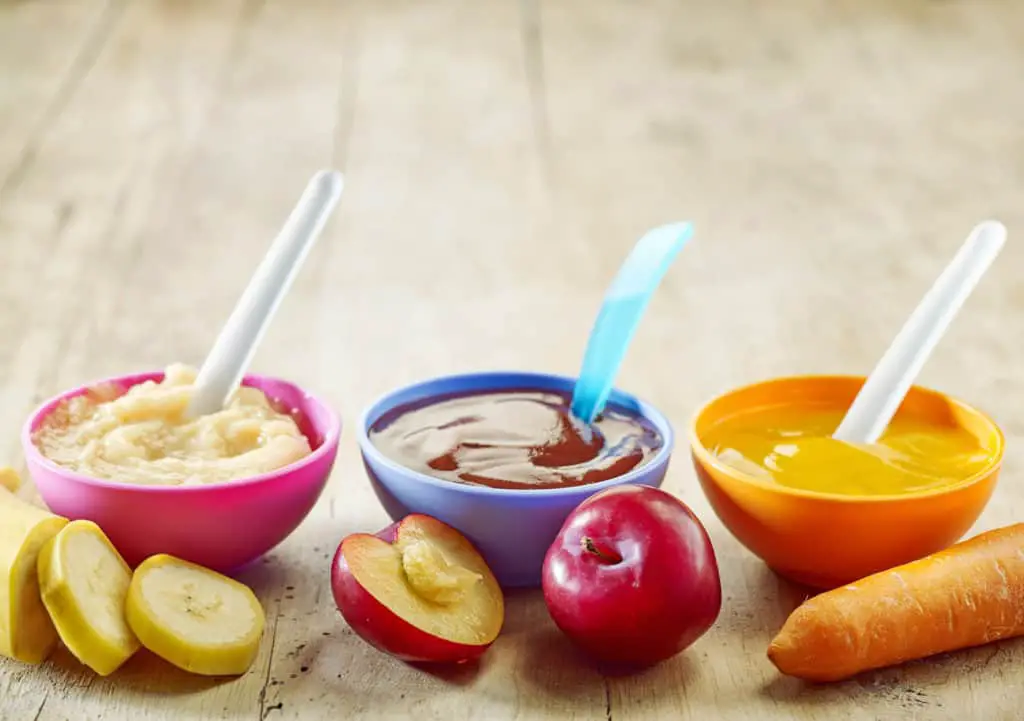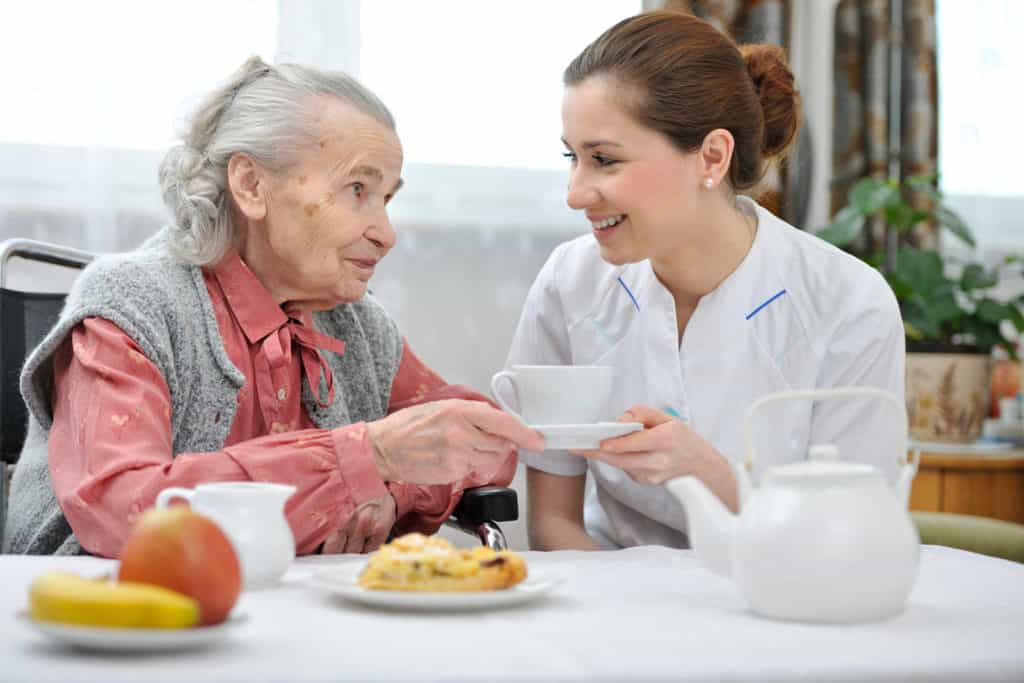
If you have experience taking care of the elderly, you’d know that sometimes they can have trouble swallowing their food. Since seniors need certain nutrients to keep their body healthy, the only option is to puree their food to make it easily chewable, just like baby food.
Can seniors eat baby food? Yes, but it is not recommended to be a substitute for a standard, adult diet. Baby food is made to contain all the essential nutrients, carbs, and other vitamins and minerals that infants need; they may not meet the nutritional requirement an elderly person has.
Baby food is food that’s either mashed down or broken down to make it soft so that it’s easily consumable. Let’s dive in to see whether baby food is for seniors or not by understanding their dietary needs compared to infants.
Can seniors eat baby food?
Seniors can be given baby food in regulated quantities by adding it to pureed recipes to add more taste or create variety. For example, fruit-flavored baby food could be used to replace sugar in desserts. Baby food also provides the convenience of a quick meal if you are struggling with time or work.
However, there is a reason it’s called baby food; it contains all of the necessary vitamins and minerals that babies from 6 to 24 months of age need to grow and be healthy, but may not be enough to support the diet for an older adult. Why?
- Babies need more energy. Babies are more active than elderly people. Since they are growing up, their body consumes more energy and needs food that’s rich in fat. On the other hand, seniors need to reduce fat intake, so baby food doesn’t help.
- Insufficient nutrients. The nutrient requirement for elders and babies is very different. Baby food contains nutrients that are required by a baby, which may not be sufficient or more than what an older adult needs. For example, baby food doesn’t have enough proteins that are needed by seniors.
- Taste is different. Baby food is pretty bland since babies do not have their taste developed at such an early age. On the other hand, elders may lose their taste over time and want more flavorful food.
Is it okay for adults to eat baby food?
As mentioned above, baby food is prepared with the growth and development of a baby in mind. Whether it is seniors or adults, their nutritional requirements are very different from the babies. Adults have a faster metabolism than seniors, but it’s still slower than babies. Adults also need less energy than what babies do.
Though it may feel tempting to eat baby food sometimes for the sake of convenience, it may not be as helpful in maintaining a well-balanced diet in adults. You may have to make up for lack of nutrients with supplements and workout more to use up all the energy produced by the fats in baby food.

Why do some seniors need a soft diet?
Before planning the kind of soft food or baby food you want to give seniors, it is essential to understand why an elderly person may need a soft diet in the first place.
Teeth Loss
One major cause of switching to a soft diet for seniors is tooth loss due to old age. As the human body ages, tooth enamel gets weaker and wears away, which causes the teeth to loosen. This can cause tooth loss, which is a big reason why elders find it difficult to eat food. Teeth loss also leads to receding jaws. This means that elderly people are not able to open their mouths wide enough and move their jaws properly to chew the food, thus requiring them to have a soft or pureed diet.
Dysphagia
The elderly are at a higher risk of suffering from dysphagia or the feeling of food being stuck or delayed on its way to the stomach from the mouth. With the ability to swallow deteriorating with age, many elders find it hard to chew and swallow whole, dry, or solid foods. This leads to poor nutrition, dehydration, loss of appetite, and weakness. In severe dysphagia cases, when swallowing solids becomes nearly impossible, an elder may need to be given a pureed diet.
Weakened Motor Skills
Motor difficulties can affect a person’s eating habits. In the case of memory loss, the person may not even remember to eat or drink. Sometimes, due to the limited movement of their mouth and jaw, they may have difficulty swallowing food. With an increased requirement in nutrient-intake and decreased ability to chew, swallow, and eat the food, elders may need to be given a liquid or soft diet.
Surgery or Medical Requirement
In many cases, after major surgery, especially heart or stomach surgeries, the digestion process is slowed down, and the body finds it challenging to be able to break down solid food. In such cases, the elderly are given a pureed diet with foods that contain all the necessary nutrients for the recovery of the body.
Understanding a Senior’s Diet
It is common knowledge that elders have many different nutritional requirements than teenagers or young adults. Whether they can consume a solid diet or require a pureed food diet, it is also important to understand how different age-related health problems affect their diet:
- Weaker digestive system. With age, the production of digestive fluids in the body goes down, which means it either takes much longer to process the food or isn’t able to break down food and absorb complex nutrients like Vitamin B12.
- Decreased appetite. With age and growing ailments, many seniors begin taking a lot of medication that affects their appetite. This could either mean that the medication is covering for the lack of nutrients as senior-supplements or it is causing side-effects that include loss of appetite.
- Slower metabolism. Metabolism slows down with age, which means that the body is not consuming enough energy. This translates into the fact that with old age, the body’s energy requirements also go down, and you need to eat healthy to stay healthy.
- Mental health. One of the most severe side-effects of age and medication is on mental health. Many elderly suffer from loneliness, emotional imbalances, memory loss, etc. which also leads to loss of appetite.
A well-balanced diet can do the trick of providing the body whatever nutrients it needs in the right quantity. This is achieved by eating fruits, vegetables, grains, dairy, and eliminating sugar, fat, etc. in your everyday diet. As food requirements change with age, the diet needs to change too.
How to Plan a Balanced Diet for the Elderly
- Introduce fresh fruits and vegetables. Elders need food that is easily digestible like green vegetables. Fruits help balance the water and sugar levels in the body. Since the body is not able to break down complex sugar, it is vital to take sugar in its natural form through fruits that act as a source of energy.
- Incorporate low-fat dairy with Vitamin D. Old age leads to weaker and sometimes brittle bones. It is, hence, essential to consume products that are rich in Vitamin D without adding fat intake. Low-fat dairy with Vitamin D, either in the form of milk, yogurt, etc., is a good idea.
- Reduce calories. Reduce calorie intake by avoiding food that has a high-calorie count but low nutrients. Keep an eye on how many calories any given food item contains by reading the nutrition labels. Avoid indulging too much in desserts, fried foods, junk foods, etc.
- Take supplements. Some nutrients may get missed, even if you have a balanced diet. This could be due to allergies, medications that you are taking, or because the body is not able to absorb these properly. Consult a doctor to see if you can add supplements to your daily diet to make sure your body is getting all the required nutrients.
Conclusion
With age, the human body undergoes drastic changes. It becomes increasingly important to focus on healthy eating and the right nutritional intake as you grow older. As the activity levels decrease with age, so do the body’s needs for energy-generating foods. However, with organs, bones, and muscles growing older, too, they need additional nutrients to remain healthy.
Ultimately, seniors can eat baby food in controlled quantities as an addition to their existing diet. Seniors cannot solely rely on baby food for all their nutrient-need. If you plan to give the elderly any kind of baby food, make sure you read the nutrient label carefully to see how it would affect the diet, what nutrients it would provide, and how much quantity can be fed.
References:
https://www.disabled-world.com/fitness/diets/special/senior-nutrition.php
https://www.goodhousekeeping.com/life/parenting/a38792/i-ate-baby-food-for-a-week/
https://www.ncoa.org/economic-security/benefits/food-and-nutrition/senior-nutrition/
https://www.ncbi.nlm.nih.gov/pmc/articles/PMC3426263/
